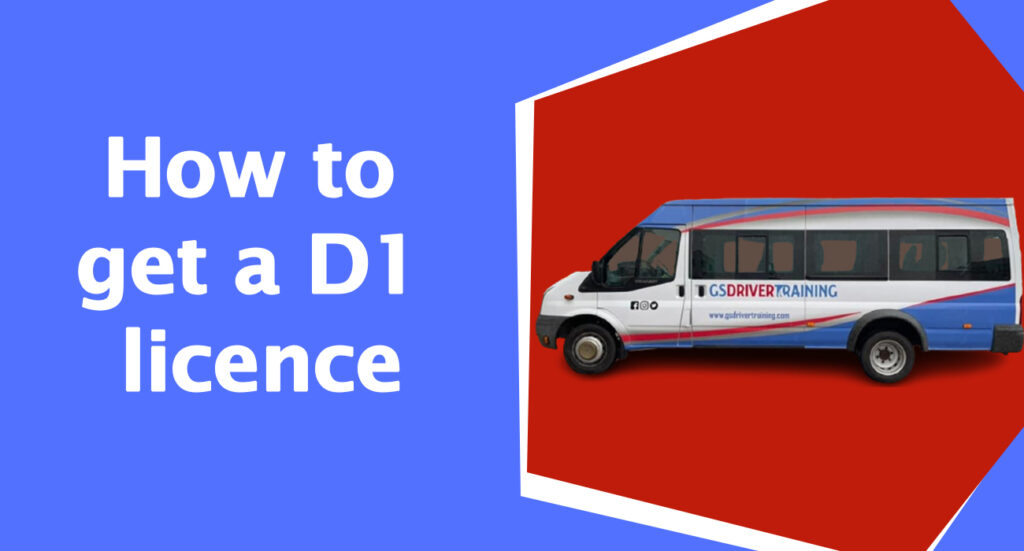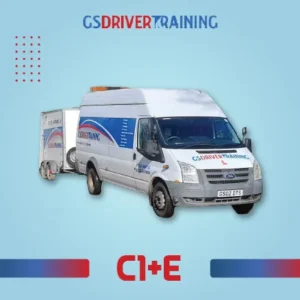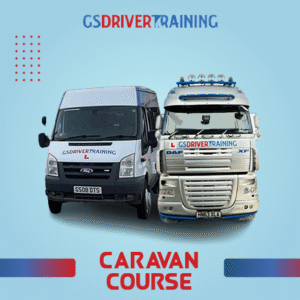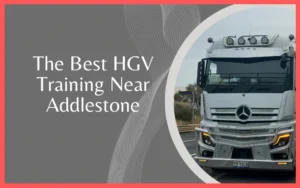How to get a D1 licence
If you already own a minibus or are thinking of hiring on a day, weekly or contract basis, a D1 driving licence should be on the top of the to-do list for the month. So now, if you are already familiar with the D1 driving licence, some training centres might want their trainee to have a few things in mind. It can include ‘What is a D1 Driving licence?’, ‘How to get one?’ and all the other minor details.
License Category: The pcv minibus licence is categorised as “D1” in the UK, which is part of the broader category for passenger-carrying vehicles (PCV).
Here is the information you might need before you join your licence training course.
What is a D1 Driving Licence?
If you are eager to drive a minibus with 9 to 16 passengers, you will need a D1 driving licence. It is a driving licence category set by the government of the UK for people who want to drive a minibus.
If you want a trailer weighing up to 750 kg, you might need a D1+E licence. The weight of the trailer and minibus together should be at most 12,000 kilograms. The length of the minibus can be around 8 meters. You must be 21 and have a full category B (Car Driving Licence) license.
What is PCV training?
PCV (passenger-carrying vehicle) training is a specialised training that prepares individuals to operate vehicles designed for carrying passengers. PCV drivers are responsible for transporting passengers safely and efficiently, typically in buses, coaches, minibuses, and other public transport vehicles. PCV training is particularly relevant for those seeking careers in public transportation, tourism, or private passenger transport services. Here are key aspects of PCV training:
1. PCV License Categories: PCV training is categorised into several license categories, each permitting the operation of specific types of passenger-carrying vehicles. These categories may vary by region, but common ones include:
Category D1: Allows the operation of small minibuses with up to 16 passenger seats. Minibus licence
Category D1+E: Permits driving minibuses with a trailer.
Category D (Full PCV License): Authorises the operation of larger buses and coaches with more than 16 passenger seats. bus driver training course
2. Eligibility Requirements: The criteria for PCV training often include having a valid car driving license, passing a medical examination, and meeting minimum age requirements. Specific requirements may vary by region and license category.
3. Theory Training: PCV training typically begins with theoretical instruction, covering passenger safety, vehicle operation, road regulations, and hazard awareness. Candidates must prepare for and pass theory tests relevant to their chosen license category.
4. Practical Training: Practical training is fundamental to PCV training. It involves hands-on instruction in operating passenger-carrying vehicles. This training may include vehicle control, safety procedures, passenger management, and vehicle checks depending on the license category.
5. Practical Driving Test: After completing the required training, candidates must pass a practical driving test, which assesses their ability to operate PCVs safely on public roads. This test includes elements such as vehicle control, road awareness, and passenger safety.
6. Driver CPC (Certificate of Professional Competence): Like HGV drivers, PCV drivers often need to obtain a Driver CPC in addition to their PCV license. The CPC involves periodic training and assessments to ensure that drivers maintain their professional competence.
7. Career Opportunities: PCV drivers can pursue careers in various fields, including public transportation, tour and travel companies, school transportation, and private charter services.
PCV training is essential for ensuring the safety and comfort of passengers using public transport services. Suppose you’re interested in becoming a PCV driver. In that case, it’s important to research your region’s specific requirements and training programs, as they can vary, and to choose a reputable training provider to help you achieve your goals.
How to obtain a D1 Driving Licence the right way?
You will be delighted that getting a D1 driving licence is relatively easy. Here are the steps to follow:
- The first thing you need to make sure of is you have your Driver CPC (Certificate of Professional Competence).
- Now, you must fill out the D1 provisional licence form. (You will find these forms on the online platform of Government DVLA.) DVLA here
- You must qualify for the medical examination once you are through your provisional licence requirements. See if you already have the D1 entitlement.
- You need to get forms D2 and D4 filled by a doctor and then submit them to the DVLA.D4 Medical Form (download here)
- This medical test ensures you are fit to drive a minibus.
- After qualifying for the medical test, you must sit for your theory test. PCV theory test
- The first is multiple-choice questions and the second concerns hazard perception.
- You need to pass both to reach the practical tests.
- Now that you have qualified for the theory test, you must book and clear a practical test.
These are the steps you need to keep in mind. Failing in any of the exams can be bad for you. Once you are through this, you will receive your licence at the address mentioned on your car driving licence.
Other details about the D1 Driving Licence
- The minibus should be used for social purposes only by a non-commercial body.
- The driver should be 21, and have a car licence for at least two years.
- If your age is 70 or above, you will have to make a special application to meet the higher medical standards.
So these are a few questions to note down that any trainer can ask before letting you into their training school. Also, this information is very basic, and a person obtaining a D1 driving licence should know all this. Now, with all the information, you can answer everything correctly and take the training from the best driver training school. application form
Application to register a non-GB driving licence (form D9)
Form D9, titled “Application to Register a Non-GB Driving Licence,” is a specific form used in the United Kingdom (UK) for individuals who hold a non-GB (non-United Kingdom) driving licence and wish to register it with the UK Driver and Vehicle Licensing Agency (DVLA). Registering a non-GB licence is often a necessary step when becoming a resident of the UK or if you plan to stay in the UK for an extended period.
Download the Form: You can typically download Form D9 from the official DVLA website or obtain a physical copy from a local DVLA office. D9 Application Form.
D1 Minibus Courses:- D1 minibus courses are specialised minibus driving training programs designed to prepare individuals for the D1 minibus license test. These courses cover theoretical knowledge, practical skills, and safety aspects related to driving minibuses.
PCV Bus Driver Training:- PCV (Passenger Carrying Vehicle) bus driver training encompasses various categories of licenses, including D1 for minibuses. PCV training is essential for individuals seeking to become professional bus drivers. It includes both theoretical and practical components.
3. D1 Minibus Test:
The D1 minibus test consists of theory and practical driving tests.
The theory test assesses your knowledge of road safety regulations, passenger safety, and minibus operation.
The practical driving test evaluates your ability to operate a minibus safely on public roads, including vehicle control and passenger management.
PCV Licence Category D1:- The PCV license category D1 specifically refers to the ability to drive minibuses with up to 16 passenger seats. It is one of the categories within the broader PCV license classification.
D1 Minibus Licence Training:- D1 minibus license training typically includes a combination of theoretical classroom instruction and practical on-road training. Training providers offer courses to help candidates prepare for the D1 license test.
Q: What is a D1 licence?
A: A D1 licence is a driving licence category allows you to drive a minibus in the United Kingdom. It is not automatically included as part of the conventional driving licence, so you must apply for it separately if you want to use a minibus for business or personal use. To be eligible for a D1 licence, you must be over 21, have held the licence for over two years, and have no more than six penalty points. You must also attend a medical examination and a special theory driving test. Once you have obtained your D1 licence, you can legally drive minibuses of up to 17 passengers for non-commercial journeys.
Q: Is a D1 licence mandatory in the UK?
A: A D1 licence is a special type of minibus licence available in the UK, and it is mandated for any person wishing to drive a minibus with more than eight passengers without pay. A D1 licence is a category on a standard UK driving licence, and to obtain a D1 licence, an individual must pass the relevant D1 minibus theory and practical driving tests. In the UK, a D1 licence is required for anyone wanting to drive a minibus carrying more than eight people on the road, whether it is for private, business or volunteer purposes. Therefore, if you want to drive a minibus with more than eight passengers in the UK, having the appropriate D1 licence is necessary.
Q: How do I obtain a D1 licence?
A: If you require a D1 minibus or D1 licence, commonly called the PCV licence, then you need to complete a Driver Certificate of Professional Competence (Driver CPC). This involves both theory and practical tests, and your potential employer will usually provide all the necessary training. You may also be able to apply for a ‘Provisional’ PCV licence, which will enable you to travel in a limited number of minibuses while supervised by a qualified driver. Once you have completed your PCV training, you can apply for a full D1 licence and no longer require supervision. The application process for a D1 licence will include a medical questionnaire and full vehicle licence plate checks.
D4 Medical Form (download here)
Q: What do I need to do to start minibus training?
A: If you’re interested in gaining a minibus licence, known as a PCV (Passenger Carrying Vehicle) licence, you must first ensure you have a valid UK driving licence. You must also have held it for more than two years. You will then need a two-part medical examination to check your physical and mental capability to drive a minibus. Then, once the above steps are complete, you must attend and pass a 3-day course conducted by an authorised DVSA (Driving and Vehicle Standards Agency) training centre. This course is also known as the D1+E (Category D1+E) test. Once the course is completed and passed, you will be granted your PCV licence, allowing you to operate a minibus.
Q: How much does the PCV theory test cost?
A: Committing to learning how to drive a minibus can involve considerable expense and effort. Taking the theory test is just the first step, so knowing how much the PCV theory test costs before you start is essential. Fortunately, the official PCV theory test cost in the United Kingdom is quite reasonable. Before booking your theory test, ensure you have a valid provisional minibus licence, which will cost nothing, but you must pay for a medical.
The theory test in the UK is priced at around £26 for the multiple choice question, £11 for the hazard perception, and £23 for the case studies CPC, making the overall cost for the PCV theory tests just £60. You will need to bear in mind that you will need the training to pass the tests, and that will be an additional cost to bear in mind. Once you pass the theory test, you can take the practical driving test and become a fully qualified minibus driver.
Q: Is the D1 licence recognised outside the UK?
A: The D1 licence is recognised in many European Union (EU) countries.
What are the different PCV license categories?
A: PCV licenses are categorised into various classes based on the size and capacity of the vehicles. Common categories include D1 (small minibuses), D1+E (small minibuses with a trailer), and D (full PCV license for larger buses and coaches).
What are the eligibility requirements for a PCV license?
A: Eligibility criteria may include holding a valid car driving license, meeting minimum age requirements (which can vary by category), passing a medical examination, and demonstrating your ability to read a standard license plate at a specific distance. Group 2 medical standards
Do I need to pass a theory test for a PCV license?
A: Yes, you typically need to pass a PCV theory test, which assesses your knowledge of road safety regulations, passenger safety, vehicle operation, and hazard awareness. The specific test you take depends on the license category you’re pursuing.
Is practical training required for a PCV license?
A: Yes, practical training is a crucial part of PCV license preparation. It involves hands-on instruction in operating PCVs safely. Training may cover vehicle control, safety procedures, passenger management, and vehicle checks depending on the category.
What is the practical driving test for a PCV license like?
A: The practical driving test assesses your ability to operate a PCV safely on public roads. It includes elements such as vehicle control, road awareness, passenger safety, and manoeuvring the vehicle. The specific test content depends on the license category.
Is a Driver CPC (Certificate of Professional Competence) required for PCV drivers?
A: Yes, like HGV drivers, PCV drivers often need to obtain a Driver CPC. It involves periodic training and assessments to ensure drivers maintain their professional competence.
How do I choose the right PCV training provider?
A: When selecting a PCV training provider, consider their reputation, the qualifications of their instructors, the quality of their training facilities, pass rates, and reviews from previous students. Reputable providers will offer comprehensive training programs aligning with your license category.
Can I upgrade my PCV license to a higher category?
A: It’s possible to upgrade your PCV license to a higher category by undergoing additional training and passing the required tests. This can expand your career opportunities.
How much do minibus drivers get paid in London?
A: The salary of a minibus driver can vary significantly based on several factors, including location, the type of employer, experience, and specific job responsibilities.
How much does minibus licence training in London cost?
A: The cost of minibus license training can vary depending on several factors, including the type of license you’re pursuing, your location, the training provider, and any additional qualifications or services you require. d1 minibus training.








